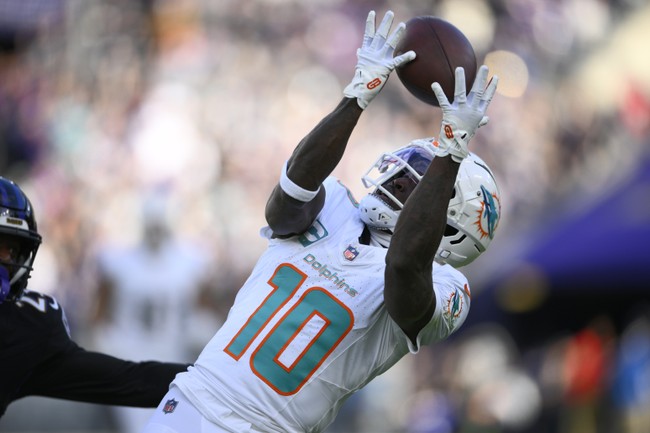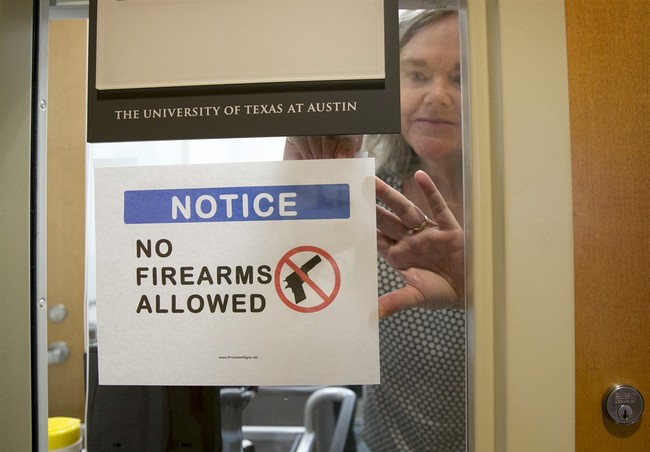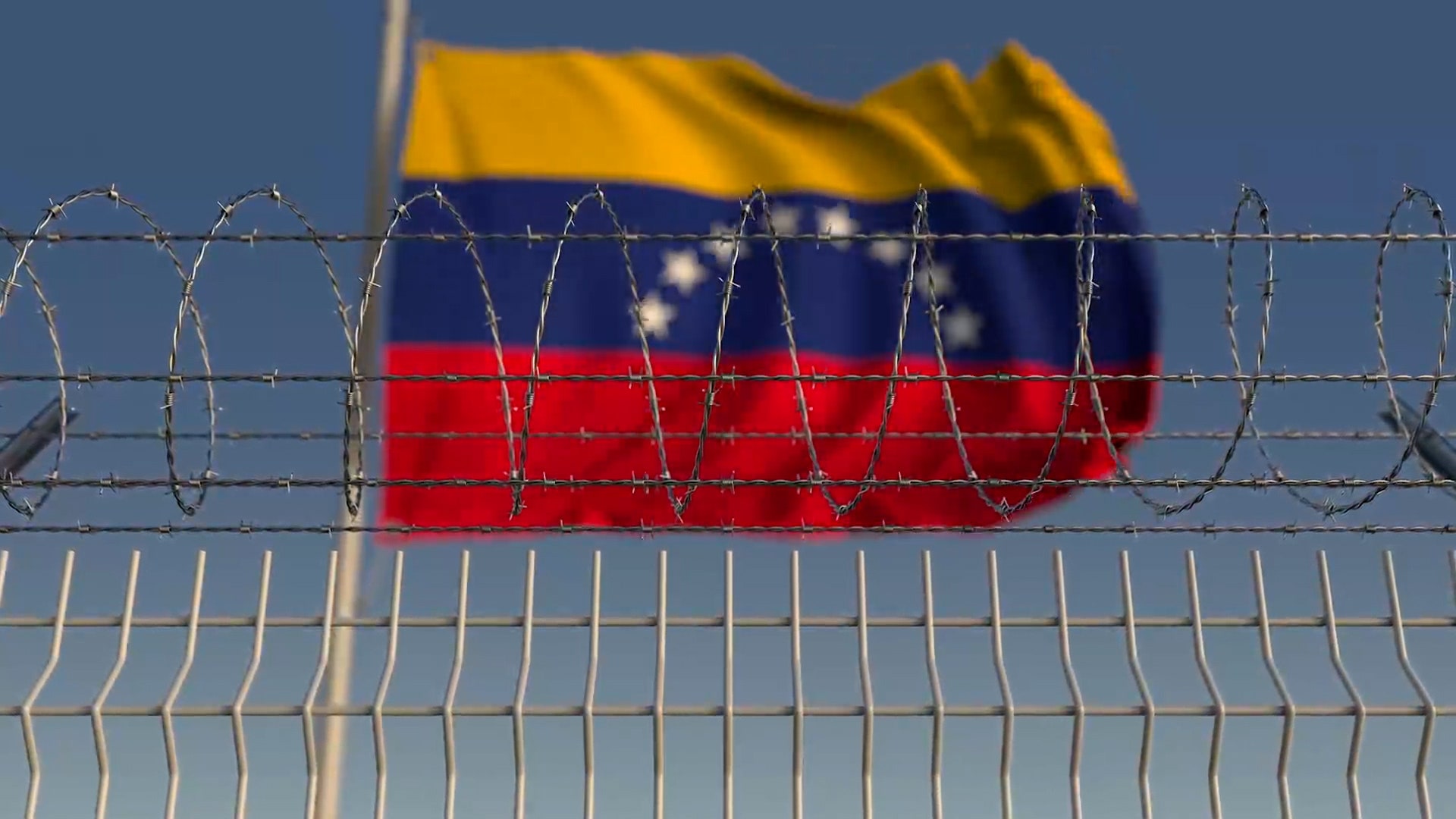Well, this certainly escalated quickly, and … that may end up being the only point on which all people agree. Miami-Dade police made the traffic stop of the year on Sunday when they pulled over NFL star Tyreek Hill just an hour or so before the game started. Before he had a chance to catch a TD pass, Hill nearly caught a few charges, and so did a couple of his teammates.
Hill and his teammates claim that police abused him. Police claim that Hill refused to cooperate. The newly released body-cam footage makes it look like both sides are correct:
The video shows a motorcycle police officer dragging Hill out of his black McLaren sports car by his arm and head and forcing him face-first onto the ground after Hill put up the window of his car during a traffic stop before Sunday’s game. A senior law enforcement source told CBS News Miami that Hill, a five-time All-Pro wide receiver, was stopped for reckless driving.
As the video shows, the altercation between the officers and Hill escalated quickly. The officers cursed at Hill but he did not resist their physical force or strike at them. He told one officer, “Don’t tell me what to do.”
It nearly turned into a team meeting:
At that point, teammate Jonnu Smith parked his SUV in front of Hill’s car, got out and asked what was going on. The officers ordered Smith to get back in his vehicle and leave. They then told him they were going to give him a ticket for blocking the road.
Defensive tackle Calais Campbell also pulled up. He was told to leave and when he didn’t, he was briefly handcuffed.
Before we go much further, let’s take a look at the replay! Get your telestrators out too, because this play is going to be more difficult to diagram than the Trombone Finale in that college game years ago:
So what do we have here — entitled athletes or power-mad cops?
Maybe a little of both. But this wouldn’t have happened without Hill escalating matters first.
Let’s start with the traffic stop itself, which began with Hill speeding past two police officers on a surface street without wearing his seat belt. That’s not smart and it’s dangerous for pedestrians, including perhaps a few fans on their way to the same Dolphins game. Once they pull him over, the two officers approach the car and try to engage Hill, who’s apparently talking on his phone instead. He then rolls up the window rather than comply with the stop, which is a big mistake, especially when those windows are as tinted as Hill’s appear to be.
Why? Police can’t see whether a suspect might be going for a weapon. Hill may not realize that rolling up the window is a major red flag at traffic stops, but police certainly know it. Had Hill kept the window rolled down and engaged the officers directly, everything that followed probably wouldn’t have happened.
At this point, though, the police begin to overreact. They remove Hill from the car by force, which is within the bounds of reasonable response, but then keep physically manhandling him even after he’s cuffed. The police on the scene seem intent on escalation rather than de-escalation, and they are supposed to do the latter when possible. One can understand why they got angry and frustrated, but they are also supposed to remain disciplined and calm rather than allow themselves to get personal and unnecessarily emotionally involved.
Neither the officers nor Hill gets helped in this regard by his teammates showing up and attempting to intervene in the police response, which again is a red flag for potential safety issues for officers. One of them leaves his car in traffic, which is guaranteed to get the officers’ attention. Their presence escalates the situation even further and serves as a reminder that no one has any business intervening in a traffic stop or an arrest.
In the end, though, all of this was over a speeding incident. A more mature approach by both (and all) sides of this confrontation would have produced a far different result. A longer version of all the body cam videos from the police runs nearly two hours and shows Hill amicably shaking hands with some of the officers before leaving the scene. Hill’s attorney tried to de-escalate matters a little later as well by suggesting that the issue was with one aggressive officer rather than the whole police force:
In an appearance Monday night on CNN, Hill said his celebrity might have saved him from even worse treatment. Noting the Colin Kaepernick-led protests in the NFL against police racism and brutality, Hill called on officers and other members of society to come together and “make a change.”
An attorney for Hill, Julius B. Collins, said on CNN that while the officer who initially approached his client was not aggressive, a colleague who quickly joined the scene and “snatched” Hill from the car was “super aggressive.” Collins accused the second officer of putting a knee into Hill’s back, putting his hand on the player’s throat and putting him in “some kind of choke hold.”
“One officer doesn’t make the whole group look bad,” Hill told the network. “Everybody has bad apples. Every team has bad apples.”
Maybe the best that can be said about this is that it should be a learning experience. And I’ll bet that’s the only other point on which everyone will agree, even after the release of the body-cam videos.
Read the full article here




![Venezuelan Illegal Alien Gang Are Terrorizing Historic Hotel In El Paso [WATCH] Venezuelan Illegal Alien Gang Are Terrorizing Historic Hotel In El Paso [WATCH]](https://www.lifezette.com/wp-content/uploads/2024/09/2024.09.10-02.58-lifezette-66e05eaa9f848.jpg)




